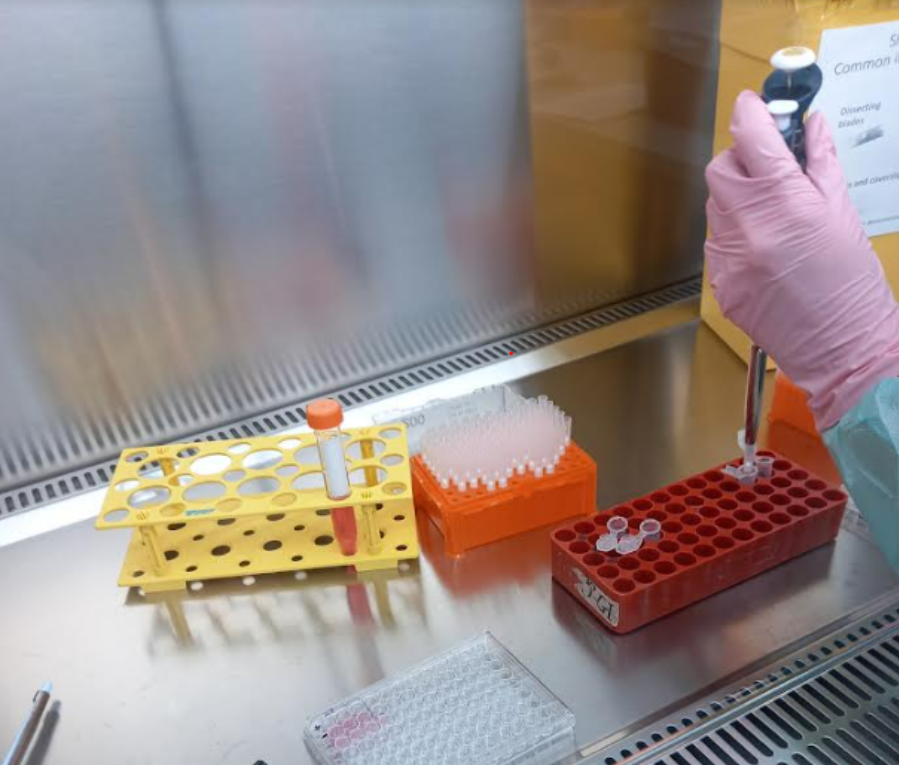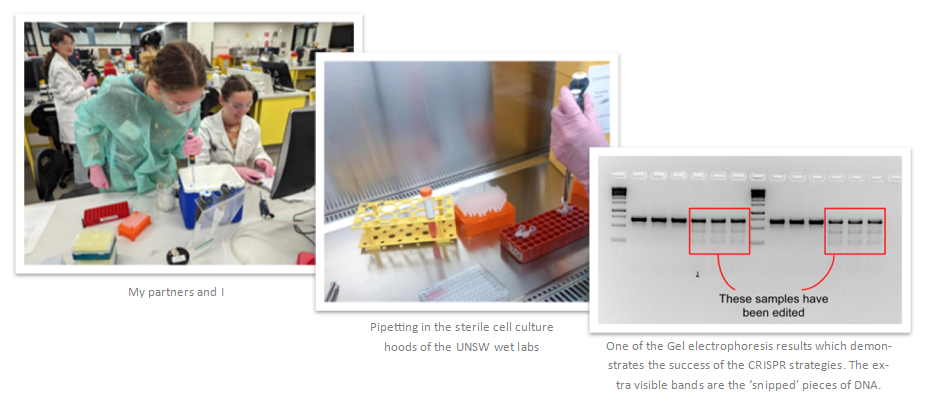
Science News
College News, Science, Building Learning Power, Parents & Carers
The HSC Science Extension course is offered in year 12 and is designed to challenge students and develop their critical thinking and problem-solving skills. Have a read of Elizabeth's exciting Science Extension journey and her partnership with the University of NSW.
HSC Science Extension Research Project: CRISPR - Editing Genes in Human Cells by Elizabeth Peabody
CRISPR, also known as the ‘molecular scissors’ of genetics, is an exciting new biochemical tool within the field of genetic engineering, capable of cleaving or inserting programmed sections of DNA. The controlled alteration of the human genome to design babies, reverse ageing or create mutants, features endlessly in science fiction, however, the positive medical applications of this technology are limitless.
My research focuses on the use of CRISPR to create a potential permanent cure for Beta-hemoglobinopathies (genetic diseases caused by mutations in the ‘beta-globin’ gene, such as Sickle Cell Disease or Beta-Thalassemia). My method tests the efficiency of a variety of ‘CRISPR strategies’ to remove the target gene (BCL11A) within human cells. The removal of this DNA segment permits the production of fetal-hemoglobin, eradicating the mutated beta-globin within potential patients.
To complete this project, I partnered with the University of NSW, who granted me access to the technology and equipment available in their labs, alongside the expertise and guidance of Professors and PhD student mentors. As an aspiring medical student, the opportunity to explore life at University, particularly within the medical and biological science field was invaluable. My week at UNSW not only allowed me to complete the practical, data collecting component of my SRP but also provided me with an unforgettable experience and a chance to connect with plenty of like-minded science nerds.
